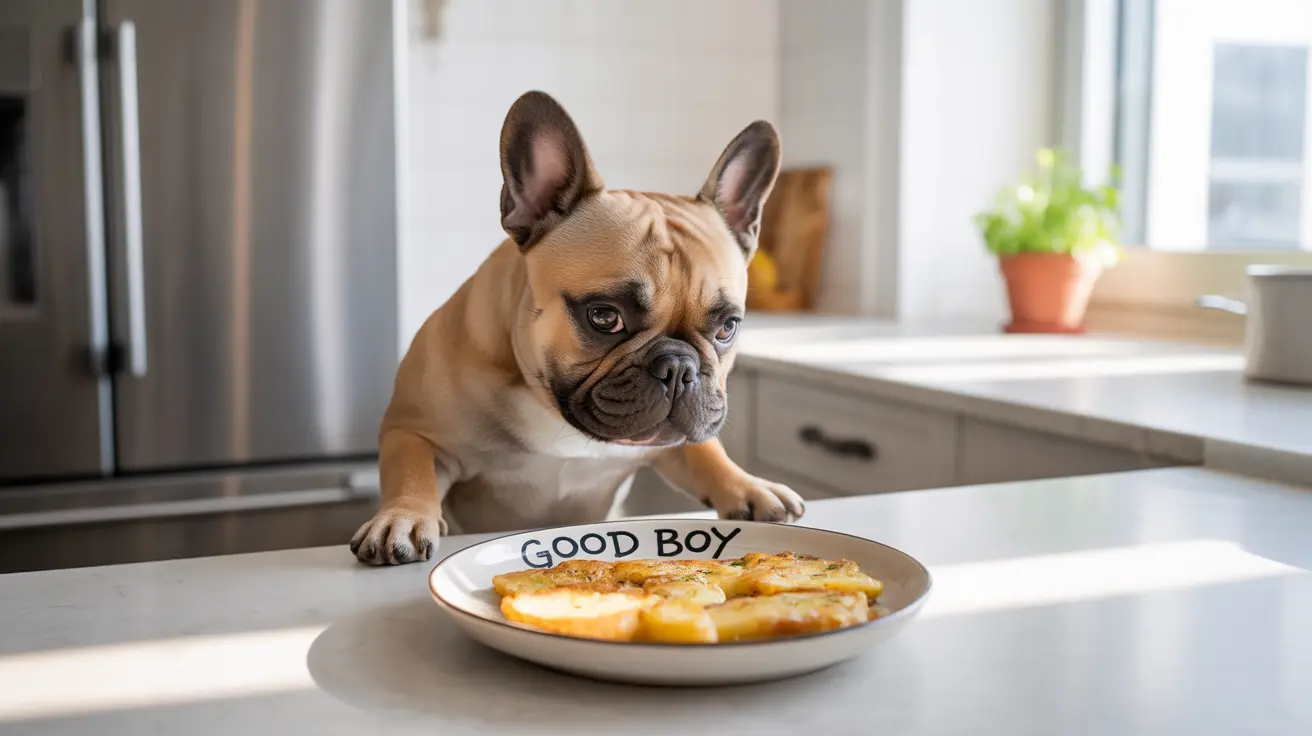Understanding the Dangers of Hash Browns for Dogs
Hash browns contain several ingredients that can be harmful or even toxic to dogs. The primary concerns include high levels of salt, excessive fat content, and potentially dangerous seasonings that are common in these potato-based treats.
Salt Content and Its Effects
Most hash browns contain dangerous amounts of sodium for dogs. A single serving can exceed your dog's daily sodium requirements, potentially leading to salt poisoning. Symptoms include:
- Excessive thirst and urination
- Vomiting and diarrhea
- Tremors or seizures
- In severe cases, kidney damage or death
The Fat Factor
Hash browns are typically fried in oil, resulting in high fat content that can cause several health issues in dogs:
- Immediate digestive upset
- Pancreatitis (inflammation of the pancreas)
- Long-term weight gain and obesity
- Cardiovascular problems
Hidden Toxic Ingredients
Many hash brown recipes and commercial products contain ingredients that are toxic to dogs, including:
Onion and Garlic
These common seasonings belong to the Allium family and can cause severe health problems in dogs, including:
- Destruction of red blood cells
- Anemia
- Weakness and lethargy
- Potential organ failure
Artificial Additives and Preservatives
Commercial hash browns often contain preservatives and additives that may harm your dog's digestive system and overall health. These ingredients can cause allergic reactions or long-term health issues.
What to Do If Your Dog Eats Hash Browns
If your dog has consumed hash browns, take the following steps:
- Determine the amount eaten
- Check the ingredients list if possible
- Monitor for immediate symptoms
- Contact your veterinarian if you notice any concerning signs
Healthier Alternatives for Dogs
Instead of hash browns, consider these safer options for your dog:
- Plain, cooked sweet potatoes (in moderation)
- Dog-specific treats formulated for their nutritional needs
- Fresh vegetables approved by your veterinarian
Frequently Asked Questions
Can dogs eat hash browns safely, or are they harmful?
No, dogs should not eat hash browns as they contain harmful ingredients including excess salt, fat, and often toxic seasonings like onion and garlic.
What health risks can salt and fat in hash browns cause for dogs?
Salt can cause sodium poisoning, leading to severe dehydration, seizures, and kidney problems. High fat content can cause pancreatitis, obesity, and digestive issues.
Why are ingredients like onion and garlic in hash browns toxic to dogs?
Onion and garlic contain compounds that can damage dogs' red blood cells, leading to anemia, weakness, and potentially life-threatening complications.
What symptoms should I watch for if my dog eats hash browns?
Watch for vomiting, diarrhea, excessive thirst, lethargy, pale gums, and any unusual behavior. If these symptoms occur, contact your veterinarian immediately.
Are plain cooked potatoes safe for dogs compared to hash browns?
Plain, fully cooked potatoes without seasonings or oils are safer than hash browns, but they should only be given in small amounts as an occasional treat, if at all.
Remember, when it comes to your dog's diet, it's always better to err on the side of caution and stick to foods specifically designed for canine consumption. If you're ever unsure about a food item, consult with your veterinarian before offering it to your pet.






